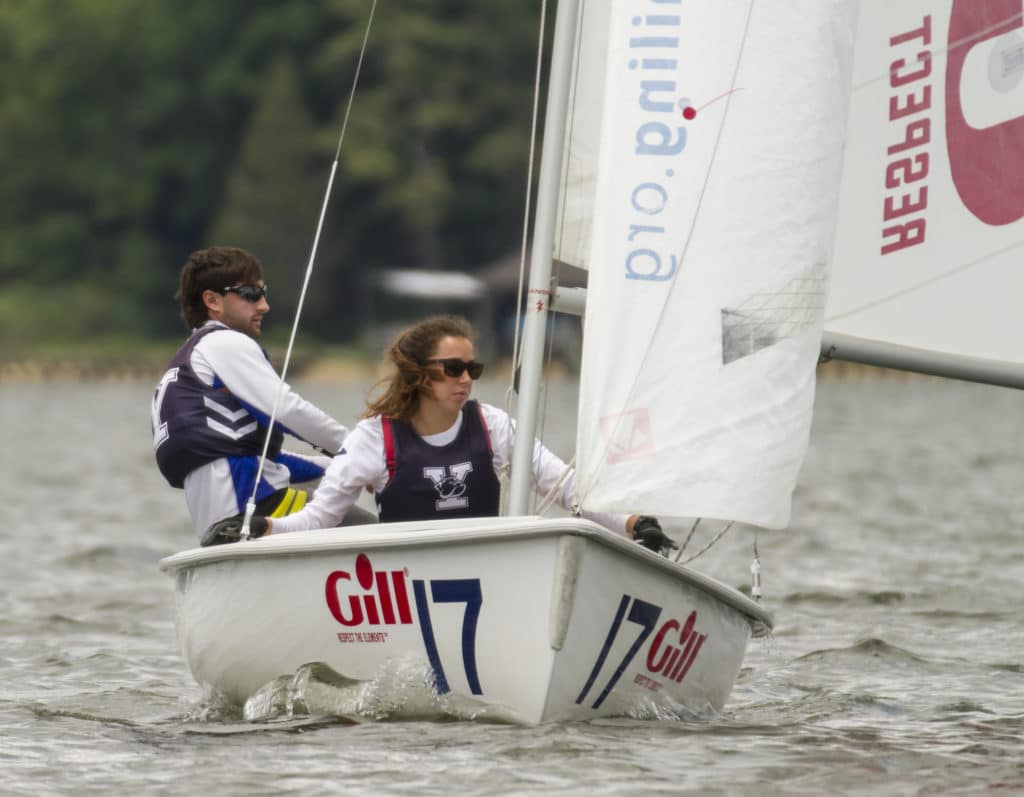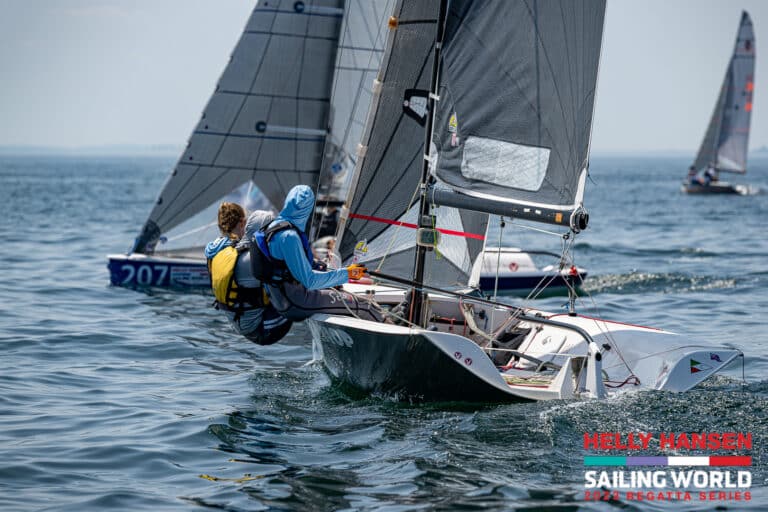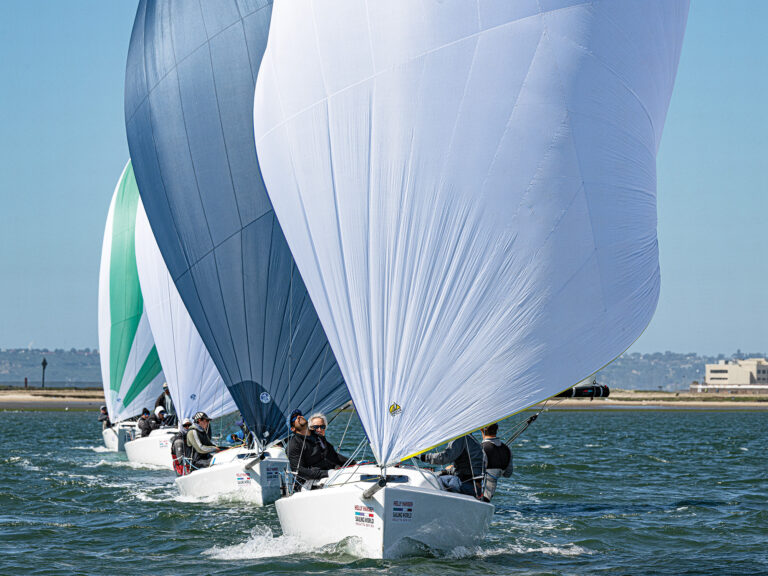Just finishing his junior year at Yale, Graham Landy has accomplished more than most will in their entire college sailing career. He has already been named to the ICSA All-American team all three years, including NEISA Rookie of the Year his freshman year. Landy has shown in just three years that the sky is his limit. But how does he do it? How year after year does he come back for the season and perform better than ever? A balance of focus and fun, he says.
First off, how does it feel to have received all of these accolades?
GL: It feels great to have accomplished so much thus far in college sailing. I’m very fortunate to have the support of a great coaching staff and teammates at Yale; none of this would have been possible without them.
What was it like the moment you found out you were named College Sailor of the Year?
GL: I was really beside myself when I found out that I had won the award. While I had hoped to win it at some point in college, I understood that thinking about becoming College Sailor of the Year would cause me to focus more on beating individual sailors than actually improving at every regatta and sailing to my potential. Given that mindset, I still don’t think the sense of accomplishment has fully hit me.
What was your main advantage going into this season?
GL: I think my main advantage going into this year was the experience that I had gained over my previous two years of college sailing. I had the opportunity to sail B division at many major regattas as a freshman and then transitioned into A division in my sophomore year.
Understanding what it takes to be competitive in college and being able to practice that over the course of two years allowed for a consistent performance throughout the year and helped me stay relaxed at important regattas. I think it takes an incredible amount of discipline to consistently be successful in college sailing. With so many races and no throwouts, the most consistent sailor wins quite often. When I’m behind or stuck in the pack I have learned to minimize risk and let others make the mistakes that will allow me to move up.
Also, learning how to accept an 8th place in a fleet of 18 takes some time; going into each race with the goal of winning is a recipe for disaster, in my opinion. However, it takes a long time to realize that conservative sailors do well over the course of a long regatta and a long season.
Do you have any tips or techniques for staying relaxed?
GL: In order to stay relaxed I have developed a pre-race routine that, when I’m feeling nervous or stressed, allows me to get back to basics and quickly build knowledge about the racecourse. I’m the type of person that likes to account for many variables, so doing my homework both before and during the regatta has helped my sailing immensely.
What was the main focus of this seasons training?
GL: To be honest I was pretty burnt out after my training for the Red Bull Youth America’s Cup last summer. In the fall I concentrated primarily on having fun while I transitioned to sailing with Kate Gaumond. Throughout the spring we worked diligently to improve our starting. I think being able to get off the line consistently makes racing so much easier and less stressful.
I tried to make practice starts more effectively simulate the difficulty of the A division at a major regatta. To do this I would often fight for an end or stick myself in a difficult situation that I would try to avoid at an event. Practicing starting in this manner not only helps improve downspeed boathandling and crowded starting, but also allows me to practice bailing out from a bad start.
You have credited much of your success to your coaches, Zach Leonard and Bill Healy. What is your relationship with them like?
GL: Bill and Zack are amazing coaches and mentors. They have helped me grow not only as a sailor but also as a person. The combination of the two provides an excellent balance of sailing information and sports psychology.
Zack primarily coaches the coed team, so we have spent a ton of time together over the past few years; I think he really understands my weaknesses and keeps me aware of them without making me nervous or uncomfortable.
Bill has been extremely helpful in providing constant feedback on sail trim and boathandling. At nationals, Bill did a great job of making sure that we were always having fun and weren’t too serious. They are both incredibly invested in our team and none of our success would be possible without their hard work and dedication.
Do you have any tips for the sailors and teams trying to compete with the Yale powerhouse?
GL: I think that each team works differently; we have concentrated a lot on the process of improving and have focused on sailing to our potential. As a team, we put a lot of faith in our coaches and trust their knowledge and planning. We try not to get bogged down in the results of individual regattas, but rather treat each session on the water as an opportunity to learn something new and refine the skills that we already possess.
A huge aspect of sailing to your potential is minimizing big mistakes such as being over early or fouling; I struggled with that at the beginning of my college career, but focusing on getting better everyday has helped relieve some of the pressure that often contributes to those kind of errors. Other than that I think, as a team, we are pretty honest with ourselves about our strengths and weaknesses; we know when to take risks and when to let others make mistakes. Of course, having fun is an important part of maintaining success!
What’s your next move in the sailing world?
GL: This summer, I’ll be crewing for Nevin Snow at the ISAF Youth Match Race Worlds in Helsinki, Finland. Other than that, I’ll just be team racing in various dinghies for fun and to stay sharp for the fall season.










